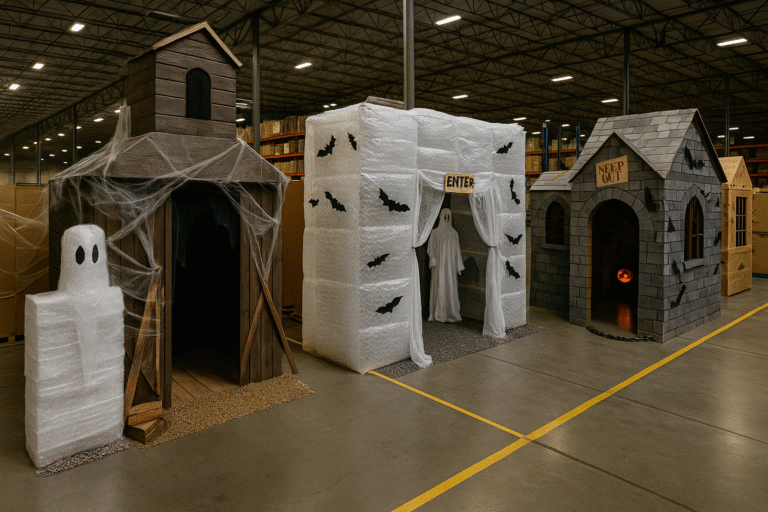Leadership Humility Story: The Lesson of Lost Prevention
This Leadership Humility Story began many years ago, when I was invited to speak to the company’s Loss Prevention team — a group of about twenty-five men and women who had traveled from all over the country to Southern California.
Our new warehouse was hosting its annual training event, and I was proud to show it off. And who doesn’t love Southern California in the winter?
I was new to the company then — energetic, numbers-driven, and eager to make an impression. When I saw the agenda and realized I’d be speaking to a team responsible for protecting millions in company assets, I thought, Perfect. I’ll motivate them to save even more next year.

These were serious people. I’d met a few of them before — smart, disciplined, and constantly buried in problems.
One guy couldn’t get his receiving team to count accurately. Another was auditing shrink discrepancies between systems. Someone else was still cleaning up a six-hour inventory nightmare caused by a bad line of code in the jewelry module — a mistake that sent double the quantity to every customer. Six hours of double shipments. You can imagine how much fun that call was.
Each person seemed to live in a different kind of storm. And to be honest, they didn’t radiate joy. If you’ve ever met a career Loss Prevention professional, you know what I mean — stoic, fact-based, all business. They aren’t hired for charm; they’re hired for accountability.
So here I was — the new director, ready to inspire the uninspired.
I created a compelling PowerPoint deck, complete with graphs, visuals, and motivational language. I rehearsed it a few times, polished my delivery, and stepped onto the stage ready to light up the room.
And I did. At least, I thought I did.
The Slide That Said It All
I told stories about operational excellence, accountability, and ownership, emphasizing how we could all protect the company’s future by paying attention to the details.
I finished strong, the room applauded politely, and my ego was satisfied. Mission accomplished.
Then I sat down for the next speaker.
The lights dimmed, and his first slide appeared on the big screen.
At the top, in bold 36-point font, was the title of his presentation:
“Lost Prevention.”
At first, I chuckled — I thought maybe it was a joke, a play on words. But no. These were the most serious people in the company. It wasn’t intentional. It was a typo.
And that’s when it hit me.
All morning I’d been talking about precision, accountability, and details — in a room full of people whose entire jobs revolved around catching mistakes. And right there, in ten-inch letters, sat a mistake that none of them had caught, not even the presenter.
The irony was perfect. I tried not to laugh, but I also couldn’t shake the thought:
How many times do we all do the same thing?
We talk about excellence, process, and results — and yet we often miss the small details that define all three.

Lesson Learned
That day I realized leadership isn’t about teaching others what you know — it’s about staying humble enough to keep learning, even in the middle of your own presentation.
The “Lost Prevention” slide became a metaphor for my own leadership. While I was focused on inspiring others to fix their problems, I nearly missed my own: the blind spot of ego.
Sometimes we get so busy delivering the message that we stop living the message.
We preach accountability but miss the typo.
We demand excellence but forget empathy.
We measure others but forget to measure ourselves.
Real leadership starts when you stop trying to impress the room — and start paying attention to what’s right in front of you.
Leadership Takeaway
Humility is the quiet power behind every great leader.
It’s what turns mistakes into lessons — and lessons into wisdom.
When leaders stay humble, teams stay human.
And when teams stay human, accountability follows naturally.
Internal Links
External Links
FAQ Section
Q: What is leadership humility?
A: Leadership humility is the ability to stay open to learning, admit mistakes, and lead without ego — focusing on growth over perfection.
Q: Why is humility important in leadership?
A: Humility builds trust and connection. It allows leaders to listen, adapt, and create environments where people feel valued and safe to fail.
Q: How can I practice humility as a leader?
A: Pause before reacting, seek feedback, admit when you’re wrong, and remember — the goal isn’t to be right; it’s to do what’s right.





